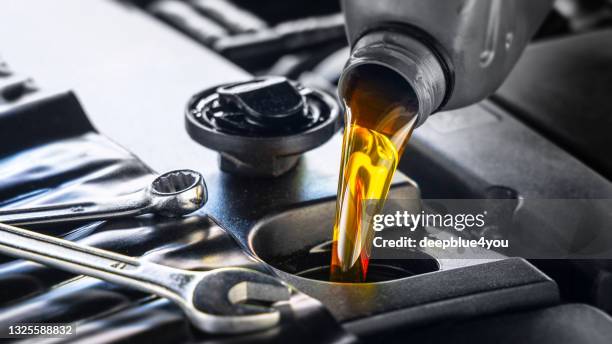Optimize Your Auto'S Efficiency With Routine Oil Modifications
Preserving your automobile's performance is a diverse undertaking, with regular oil adjustments standing apart as a crucial element. Fresh engine oil plays a pivotal duty in guaranteeing optimum lubrication, reducing friction, and protecting against wear on necessary components. This practice not just boosts fuel performance however additionally fosters a much healthier engine environment. Lots of drivers ignore the indications that show a demand for an oil adjustment, potentially jeopardizing their lorry's longevity. Recognizing these signs and the advantages of timely upkeep might lead to substantial improvements in your auto's total efficiency. What might you be missing out on?
Value of Routine Oil Modifications
While numerous vehicle owners may overlook the significance of regular oil changes, ignoring this critical upkeep job can cause severe repercussions for engine performance and durability. Engine oil plays an important function in lubricating relocating components, minimizing friction, and avoiding overheating. With time, oil degrades due to exposure to warmth and pollutants, which diminishes its performance.
Failing to alter the oil frequently can cause the build-up of sludge and debris, which can obstruct essential engine parts and result in enhanced wear. This not just jeopardizes engine efficiency however can additionally result in pricey repair services and even total engine failing. Furthermore, old oil sheds its ability to counteract acids produced throughout combustion, which can bring about rust and further damage.
Furthermore, many lorry makers suggest details oil change intervals, usually based on gas mileage or time. Sticking to these guidelines is crucial for maintaining guarantees and ensuring optimum vehicle efficiency. In summary, regular oil changes are not merely an idea; they are a vital part of liable car upkeep that secures the engine and boosts total performance. Prioritizing this job will contribute substantially to the long life and reliability of any type of automobile. Oil Change Lockhart.
Advantages of Fresh Oil
Transforming to fresh oil uses numerous advantages that straight improve engine efficiency and effectiveness. One of the key benefits of fresh oil is its exceptional lubricating properties. New oil decreases friction between engine components, which not only minimizes wear but additionally adds to smoother procedure. This causes enhanced fuel effectiveness, as the engine does not need to function as difficult to get rid of resistance.
Additionally, fresh oil successfully cleans the engine by suspending impurities and protecting against sludge accumulation. In time, oil becomes infected with dust, steel particles, and combustion results. Frequently replacing oil makes certain that these dangerous compounds are removed, promoting a cleaner and much healthier engine atmosphere.
Furthermore, fresh oil help in ideal temperature law. It dissipates warm much more effectively, protecting against overheating and prospective damage to engine elements. This is particularly crucial during peak performance situations, where warm buildup can her latest blog hinder engine capability.
Indications Your Oil Needs Changing
Engine oil is the lifeline of your automobile, and identifying when it needs altering is important for keeping ideal efficiency - Oil Change Lockhart. Numerous indicators suggest that it's time for an oil adjustment, and staying vigilant can avoid engine damages and expensive repairs
First, check the shade and uniformity of the oil. Fresh oil is commonly amber and smooth, while old oil might appear dark and sandy, showing contamination and lowered effectiveness. A modification in viscosity can additionally represent that the oil has actually broken down and is no more adequately lubing engine elements.

An additional indication this article is the oil modification light on your control panel. This sharp serves as a suggestion that the oil has actually reached its life expectancy or that there is an underlying concern needing interest. In addition, uncommon engine sounds, such as knocking or ticking, may suggest insufficient lubrication due to degraded oil.
Finally, if you observe oil spots or pools under your vehicle, it may indicate a leak that necessitates immediate evaluation and possible oil modification. Being alert to these indicators will certainly ensure your engine operates smoothly and efficiently.
Choosing the Right Oil
Choosing the proper oil for your car is important for ensuring optimum efficiency and longevity. This advice will certainly direct you towards the proper viscosity grade, such as 5W-30 or 10W-40, which indicates the oil's thickness at different temperature levels.
Following, think about the type of oil: conventional, synthetic, or a blend. Traditional oil is originated from petroleum and appropriates for older lorries, while artificial oil offers superior defense and performance for modern-day engines, particularly under extreme problems. Synthetic blends incorporate the benefits of both and are often a cost-efficient choice.
Additionally, try to find oils that meet sector standards, such as API (American Petroleum Institute) or ACEA (Organization des Constructeurs Européens d'Automobiles) accreditations. These indications make sure that the oil has actually been evaluated for top page quality and performance. Inevitably, selecting the appropriate oil not only improves engine efficiency yet also adds to the total wellness of your car, leading the method for smoother driving experiences.
Oil Change Regularity Recommendations

Aspects influencing oil adjustment frequency consist of driving conditions, such as stop-and-go website traffic, extreme temperature levels, and pulling heavy tons. Under severe problems, it may be sensible to change the oil a lot more frequently to stop engine wear. Furthermore, some modern-day cars come equipped with oil life tracking systems that provide individualized recommendations based on driving behaviors, which can even more maximize the oil change routine.
It's essential to consult your proprietor's manual for particular recommendations customized to your vehicle. Sticking to these standards not only protects engine health but additionally improves fuel effectiveness and minimizes emissions. In final thought, normal oil changes, timed properly based upon numerous elements, are an essential facet of vehicle maintenance that can significantly influence performance and longevity.
Verdict
